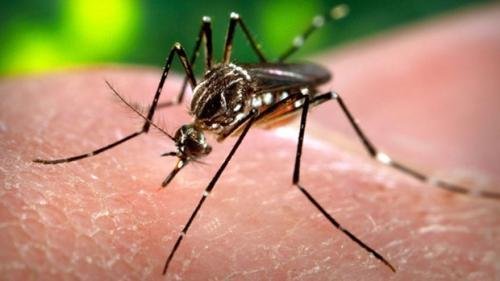The mosquito Aedes aegypti transmits viruses that cause diseases such as dengue, chikungunya and zika. Measures are taken to control the mosquito since these infectious diseases represent a significant health problem, by National Institute for Public Health and Environment of Netherlands. This is the case on the island of Saba. In order to fight these diseases a British company (Oxitec) has genetically modified the mosquito in such a way that it can suppress local mosquito populations. The modification causes the mosquitoes’ offspring to die prematurely. The potential release of these mosquitoes on Saba is considered to result in negligible risks for human health and the environment.
This is the outcome of a technical evaluation of the potential release of these genetically modified mosquitoes. RIVM’s GMO (Genetically Modified Organisms) Office was commissioned by the Executive Council of Saba to perform this evaluation.
 Among others, this evaluation looked into effects on the food chain to determine whether an important food source would disappear if the local mosquito population were to be eliminated. It was also considered whether it is unhealthy if people accidentally swallow a genetically modified mosquito. Another element of the evaluation was whether the genetic modification would increase the efficiency of the mosquito to spread diseases.
Among others, this evaluation looked into effects on the food chain to determine whether an important food source would disappear if the local mosquito population were to be eliminated. It was also considered whether it is unhealthy if people accidentally swallow a genetically modified mosquito. Another element of the evaluation was whether the genetic modification would increase the efficiency of the mosquito to spread diseases.
Considering the adaptive management model may require variable release rates over the entire island at different times, taken on average over the first 12 months, releases are anticipated to average 160 OX513A (name of the genetically modified mosquitoes) males/person/week. For a population of approximately 1800 this would mean that up to approximately 15 million genetically modified mosquitoes males would be released during the initial 12-month period.
The program is anticipated to move to a maintenance phase after the first 12 months, or earlier if suppression targets are met, requiring lower level releases to ensure residual Aedes aegypti in the environment are targeted (e.g. unhatched desiccated eggs in the environment referred to as the egg bank). In this phase, averaged over the whole island, the release rates are not expected to exceed on average 50 genetically modified mosquitoes males/person/week. This would equate to up to approximately 4.7 million genetically modified mosquitoes males during the subsequent 12 months.
Oxitec will send an accountable local project manager to reside in Saba and oversee implementation of the project throughout the initial community engagement and local setup stage, plus the entire duration of mosquito releases (12 months anticipated). Oxitec will also have a presence in the 12 months of maintenance which immediately follows, if deemed necessary. Any non-conformance with SOP’s will be recorded and reported to UK central operations, and corrective actions taken under the direction of the Oxitec Quality Assurance Manager.
Activities require local staff to be supplied by the Saba Department of Agriculture, Hygiene & Vector Control. Four local staff will be required during the first year during the preparation and intervention phases, and two staff in the following year for maintenance and monitoring.
SoualigaPost
 Archive of posts from Saba-News.com Archive Saba News
Archive of posts from Saba-News.com Archive Saba News